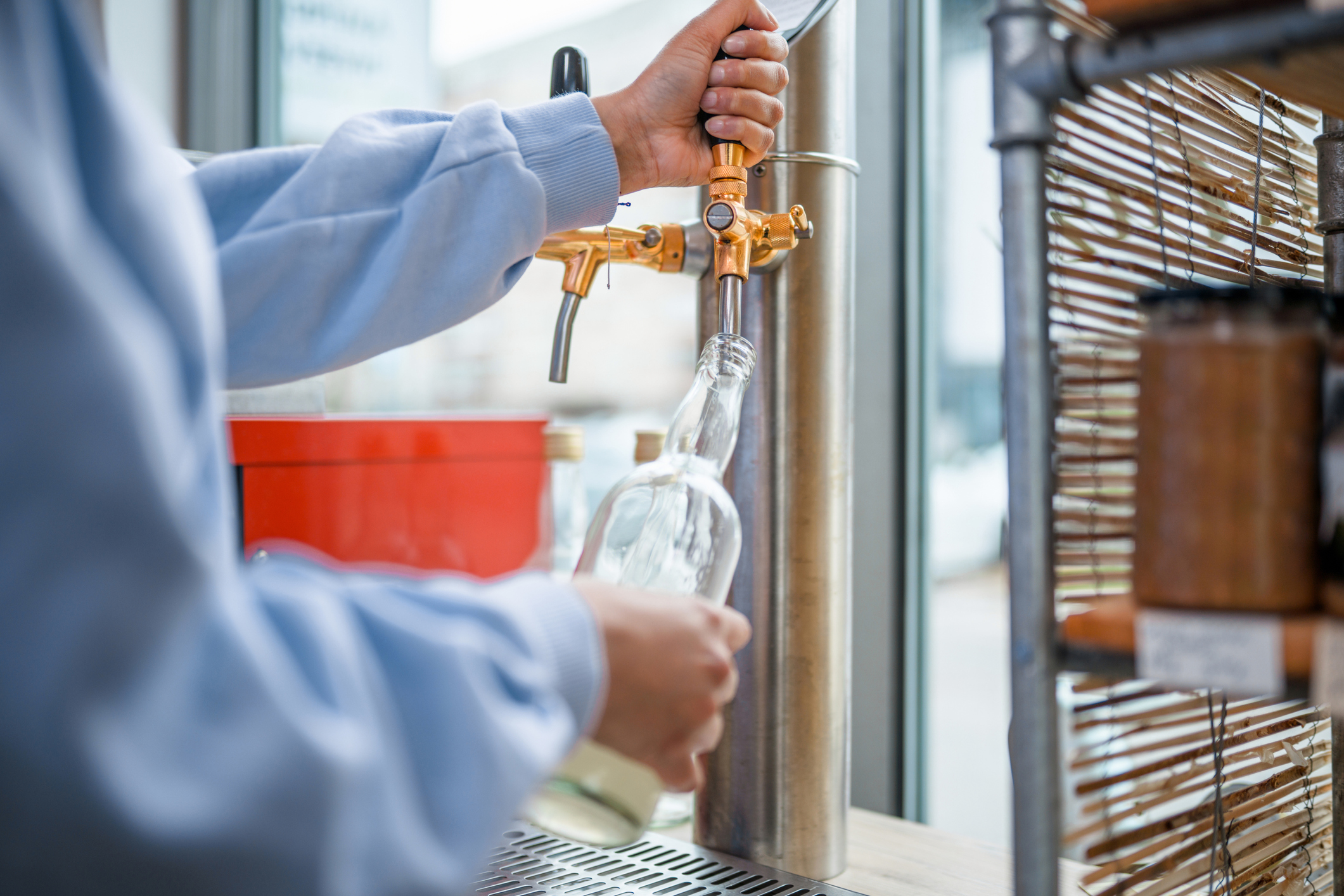There is a new force emerging from the sea of bev alc competitors. A study by Straits Research projects the hard kombucha market to reach a $262 million evaluation by 2030 at a compound annual growth rate of 23.23%. With the growing popularity of alternative alcohol options, it is no surprise that hard kombuchas are making their way into the competitive space.
A Shift Toward Healthy Hydration
Consumers are trending away from certain types of alcohol to more health-conscious options. For example, lighter beers with fewer calories, FMBs with lower sugar content, and hard kombuchas with probiotics are all functional beverages preferred by this new health-conscious demographic. Drinks with lower ABV are becoming more and more popular as many consumers are looking to reduce their alcohol consumption.
What is Kombucha?
Kombucha is a fermented beverage originating in China. It is made by introducing a symbiotic colony of bacteria and yeast, otherwise known as SCOBY, into a brewed tea mixture. It naturally contains alcohol, but a very low ABV (less than .05%) that does not cause intoxication.
Additional flavors can be introduced from herbs, spices, and fruits. The flavor profile can also change depending on the length of the fermentation process.
Producers make hard kombucha by altering the amount of sugar, type of yeast, and length of fermentation to increase the ABV to as high as 10%.
Variety of Flavors Helps Drive Profitability
Flavored kombucha teas make up the largest segment of the market share, according to Straits Research. As consumers become more familiarized with different fruit flavors, suppliers have opportunities to increase their market footprint by introducing new products.
Hard Kombucha Spreading to More On-Prem Establishments
While hard kombucha may be considered an off-prem item, Straits Research considers the on-prem segment a huge growth opportunity. More restaurants, bars, nightclubs, and hotels are opening after the pandemic and adding alternative beverages like hard kombucha to their menu.
There are also hard kombucha breweries and bars serving up multiple flavors of the popular beverage with other hard seltzers and hard teas. One example is Shorebirds Hard Kombucha Brewery + Taproom in Rancho Cordova, CA.
Who Owns the Market Share?
Straits Research’s study revealed North America generated over 45% of hard kombucha’s worldwide revenue in 2021. This came from Gen Z, millennials, and baby boomers. From 2022 to 2030, the Asia-Pacific region is expected to have the fastest-growing market. Despite this, North America is still projected to have the largest market share by the end of the decade.
Hard Kombucha is Here to Stay
These trends are the latest confirmation of consumers’ changing preferences, buying patterns, and values regarding alcohol. Businesses would be wise to incorporate some type of hard kombucha offering to stay aligned with consumer behavior.
Fintech is a trusted source for insights into the bev alc market space. Our blog is constantly updated with new content on trends we are seeing, tips on business optimization, and more. Check out a recent post exploring Gen Z trends and their effect on the alcohol market.






